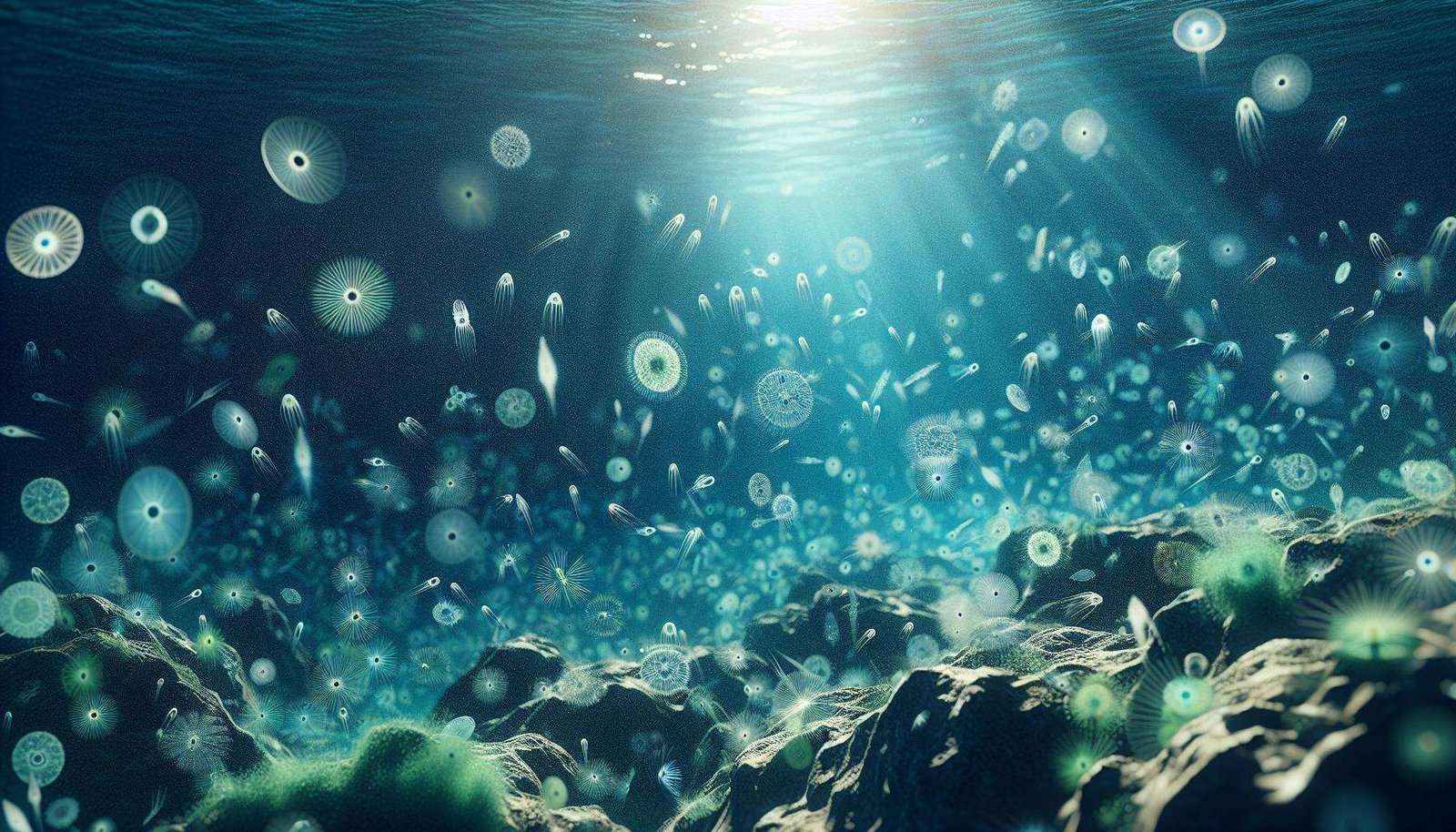
When we think of the ocean, we might imagine vast blue waves, coral reefs, or perhaps schools of colorful fish. But deep below the surface, invisible to the naked eye, lies something that might be even more important to our planet’s health: phytoplankton. These tiny organisms are not just a cornerstone of the marine food chain; they play a crucial role in producing the oxygen we breathe and in regulating our climate. So, let’s dive into why you should really, really care about phytoplankton.
What are Phytoplankton?
Phytoplankton are microscopic plants found in the ocean, lakes, and some rivers. Like land plants, they use sunlight and carbon dioxide to produce food through a process called photosynthesis. In doing so, they release oxygen as a byproduct. In fact, phytoplankton are responsible for producing about half of the world’s oxygen, making them essential for life on Earth. To put it in perspective, every second breath you take, thank a phytoplankton.
Why are Phytoplankton Important?
Beyond their role in oxygen production, phytoplankton are integral to the global carbon cycle. They absorb carbon dioxide from the atmosphere, using the carbon to grow and develop. When phytoplankton die, they sink to the ocean floor, effectively removing that carbon from the atmosphere for long periods. This process, known as carbon sequestration, helps alleviate climate change by reducing the amount of greenhouse gases in the atmosphere. You can learn more about this process here.
Environmental Challenges Facing Phytoplankton
Despite their importance, phytoplankton are facing growing challenges. Climate change, pollution, and ocean acidification all threaten their survival. As global temperatures rise, the ocean becomes warmer, affecting phytoplankton’s ability to thrive. Warmer waters can lead to fewer nutrients in the upper ocean layers, where phytoplankton reside. Without these nutrients, phytoplankton populations can decrease significantly.
Pollution is another major threat. Nutrient runoff, primarily from agriculture, leads to excessive growth of certain algae species, causing harmful algal blooms. These blooms not only consume vast amounts of oxygen, creating dead zones where marine life cannot survive, but also release toxins harmful to both sea creatures and humans.
Technological Innovations to Support Phytoplankton
Fortunately, science and technology are stepping in to help address these challenges. Satellite technology allows researchers to monitor phytoplankton populations from space. By analyzing ocean color, scientists can estimate phytoplankton concentrations and track changes over time. This invaluable data helps scientists predict future trends and influences policy decisions regarding ocean health.
Moreover, innovations in reducing carbon emissions and improving agricultural practices can indirectly benefit phytoplankton. By cutting back on fossil fuel use, we can slow global warming, maintaining ocean temperatures suitable for phytoplankton growth. Improved agricultural techniques can reduce nutrient runoff, lessening the impact of harmful algal blooms. For a deeper understanding of these innovations, visit this NASA article.
The Social and Policy Implications
Recognizing the significance of phytoplankton leads to important societal and policy considerations. Countries are pushing for environmental policies that protect ocean ecosystems. International agreements, like the Paris Agreement, aim to limit global warming, indirectly safeguarding phytoplankton by stabilizing ocean temperatures. Policy measures that promote sustainable fishing practices and reduce pollution are critical in maintaining the delicate balance of marine ecosystems. To explore more about these policies, check the Paris Agreement document.
Conclusion: The Future of Phytoplankton in Our Hands
The health of our oceans begins with the microscopic life forms like phytoplankton. Ensuring their survival is not just an ecological necessity; it’s a human one. As key players in our climate system, phytoplankton help regulate the environment that sustains us all. By understanding their importance and pushing for policies and innovations to protect them, we secure a healthier future for both our planet and ourselves.
Your efforts can make a difference too. Supporting policies that advocate for clean energy, reducing personal carbon footprints, and contributing to ocean conservation initiatives can help protect the marine ecosystems. So, next time you breathe in and exhale, remember that tiny phytoplankton far out in the ocean are working tirelessly for you. Our responsibility is to ensure they can continue doing so.
For continued learning and support, environmental organizations like the Greenpeace and Oceana offer resources and actions you can take to contribute to the cause.
The post Why Phytoplankton Matter: Understanding Their Crucial Role in Earth’s Health appeared first on Green.org.














